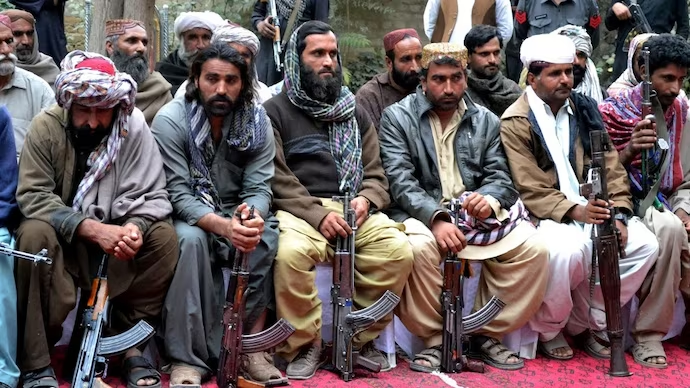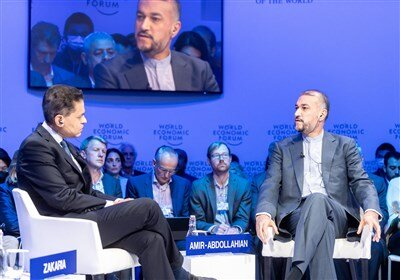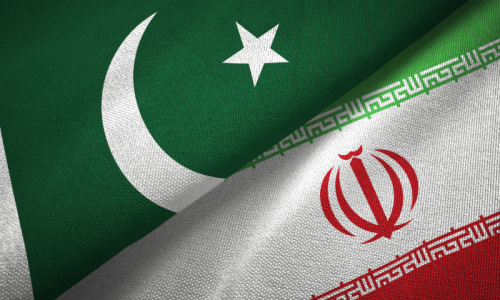Iran Pakistan Attack: Nine people, including six children, have reportedly died in the airstrikes.
The Balochistan Liberation Army, a separatist group active in the region since 2000, said in a statement that the Pakistani strikes in Iran’s Sistan-Baluchestan province targeted and killed its people.
“Pakistan will have to pay a price for it,” the group warned. “Now the Baloch Liberation Army will not remain silent. We will avenge it and we announce war on the state of Pakistan.”
(Former foreign secretary of Pakistan, Aizaz Ahmad Chaudhry, told Geo News that Pakistan acted “responsibly” and “has proved with this response that we don’t want to do it but we can do it”. He said that a “friendly” country does not attack their friends but long-term thinking is required. He urged the highest authorities in Pakistan and the Iranian government to “talk” and “settle this through bilateral communications and China’s help”.
“Iran’s government has good relations with Pakistan so we should talk to them,” he expressed. “[Pakistan’s] border situation is not okay with India and Afghanistan so I don’t think they [Pakistan] would want to open up [a conflict on] another border,” the former diplomat stated. )
Alluding to the security pact between Iran and Iraq, Iranian Foreign Minister Hossein Amir Abdollahian stressed that “Tehran has inked a security deal with Baghdad. The government and local authorities of Kurdistan pledged to maintain our border security. What we did was in the framework of confronting Israeli misdeeds.”
Highlighting that none of the Pakistani nationals were targeted by Iran in its strikes, he continued that a notorious Iranian terrorist group, Jaish ul-Adl, took refuge in Pakistan and Iran has invariably informed the country’s officials about its nefarious moves.
Hossein Amir Abdollahian noted that Tehran totally respects the territorial integrity of Iraq and Pakistan, but will never hesitate to counter threats to its national security.
In an interview with Fareed Zakaria on the sidelines of the World Economic Forum in the Swiss town of Davos on Wednesday, Iran’s top diplomat said that Tehran has excellent relations with Pakistan and Iraq.
“We talked with both countries about the necessity of countering terrorism and securing common borders. What happened yesterday in Erbil, is a topic pertinent to Mossad agents because they carried out operations in Iran and openly claimed responsibility,” he added.
Amir Abdollahian also pointed out that Iran will respond with force to any action taken by the Israeli regime, adding, “We targeted the Mossad headquarters in the Kurdistan region with precision guided missiles. This does not mean targeting Iraq. Israel is our common enemy.”
Iran cautions Biden against ‘tying destiny’ to Netanyahu
U.S. President Joe Biden has received a warning from Iran not to “tie his destiny” to that of Israeli Prime Minister Benjamin Netanyahu, who is in charge of the regime’s brutal campaign on the Gaza Strip and has the full backing of Washington.
In an interview with the American business news channel CNBC on Tuesday, Amir Abdollahian said that the U.S. support of the occupying regime is “the root of insecurity” in West Asia. “The U.S. should not, Mr. [Joe] Biden should not, tie their destiny to the fate of Netanyahu,” he said during the interview on the sidelines of the World Economic Forum in the Swiss town of Davos.
“The full-scale cooperation of Biden and the White House with thugs like Netanyahu in Israel is the root of insecurity in the region.”
Iran wants the U.S. to “end the war in Gaza,” according to Amir Abdollahian, who emphasized that the Islamic Republic places a high value on Red Sea security. “The people of Yemen and other countries in the region who defend the Palestinian people are acting according to their own experience and through their own interests, and they are not receiving any orders or instructions from us,” he added.
Panic grips village in Balochistan’s Panjgur following Iranian strike
In the serene village of Koh-i-Sabz in Balochistan’s Panjgur district, a routine sunset transformed into a nightmare on Tuesday.
Residents, accustomed to the peaceful lull of the evening, were startled when they saw a few objects tear through the sky. A deafening explosion followed, leading to a horrifying scene: a massive fire engulfing a house and a nearby mosque.
It was later discovered that the semi-mud house — the residence of Karim Dad, alias Idrees — had been hit by an Iranian missile. The strike claimed the lives of Mr Dad’s two children — six-year-old Humeira and 11-month-old Suleiman — and injured his wife and three daughters. Tehran claimed that it had launched the missiles to target two bases of the militant group Jaish al-Adl. Pakistan condemned the “blatant breach” of its sovereignty and recalled its ambassador from Iran on Wednesday, reported 'Dawn' newspaper in Islamabad.
The Iranian strike led to panic in the small village. Sources said blasts were also heard in other areas of Koh-i-Sabz, but no casualties or damage was immediately reported. Officials said the mosque near Mr Dad’s house suffered significant damage from missile splinters.
Saeed Ahmed Umrani, the commissioner of Makran division, confirmed the loss of human lives and property damage. “All the four injured have been shifted to the district hospital in Panjgur for urgent care,” he said. Senior security officials arrived in the affected area following the attack, surveying the damage and speaking with local residents and officials. Levies officials deployed in the area briefed the officials about the attack and the prevailing situation after the strikes.
Helicopters were seen hovering over the area, but they did not land anywhere, possibly due to bad weather. The Iranian offensive wasn’t limited to missiles. “Not only missiles but also mortar shells were fired from the Iranian side which exploded in different places,” a senior government officer in Makran told Dawn.
He said security measures were immediately beefed up along the border, with additional Frontier Corps troops deployed and put on high alert.
Residents close to the border said that drones were seen flying on the Iranian side, but no fresh attack or space violation was reported from any area.
Balochistan Information Minister Jan Achakzai on Wednesday strongly condemned the Iranian missile attack and violation of Pakistan’s airspace and described it as an international crime.
Former Pakistan Human Rights minister Shireen Mazari described Pakistan’s response as “swift and proportionate”.
However, she asked, “why both supposedly friendly “brotherly” Muslim countries, with deep historical and social ties, allowed space for creation of these militant groups in each other’s territories?”
Senior journalist Talat Hussain said that Iran — after Pakistan’s response — has a “window to exit the self-created crisis” since “scores are settled” in a post on X.
Paradoxically, reports from Tehran said on Jan 17th that Iran and Pakistani military forces were engaged in a day-long joint naval training exercise in the Strait of Hormuz and the northern Persian Gulf, demonstrating their commitment to enhancing cooperation and strengthening relations.
The drills, which took place off the coast of Bandar Abbas, involved combat vessels and missile-launching warships from both the Islamic Republic of Iran Navy and the Pakistan Navy, reports 'Tehran Times'.
Iran and Pakistan have increasingly intensified their military cooperation, conducting several joint naval exercises. In June of the previous year, senior military commanders from both nations discussed plans for collaboration between their navies and air forces.
During the meetings in Islamabad, Iranian Navy Commander Rear Admiral Shahram Irani engaged with Chief of Naval Staff of Pakistan Muhammad Amjad Khan Niazi and Chief of Air Staff of the Pakistan Air Force Zaheer Ahmad Babar. The Iranian delegation received briefings on the Pakistani Navy's efforts in ensuring maritime security and discussed plans for bilateral and multilateral cooperation, 'Tehran Times' had said.
Pakistani political analyst Mosharraf Zaidi warned of a “very dangerous and unpredictable situation”.
“For years, Iran has actively curated terrorists that target Pakistan — worst of all, Iran works with India to undermine Pakistani security. On the surface, Pakistan’s targeting of these groups is perfectly defensible.”
“Iran wants a fight — wherever it can get one — because a revolutionary regime cannot survive without fighting for its grand vision. That’s how it mobilises people aligned with its vision: a perpetual state of war,” Zaidi added.
On the other hand, “Pakistan is an anchor of regional and global stability and a model of strategic restraint. Pakistan’s stakes require the absence of war,” he stated. “It is no accident that Pakistan’s negative economic trajectory is aligned chronologically with the regional instability it endures.”











No comments:
Post a Comment